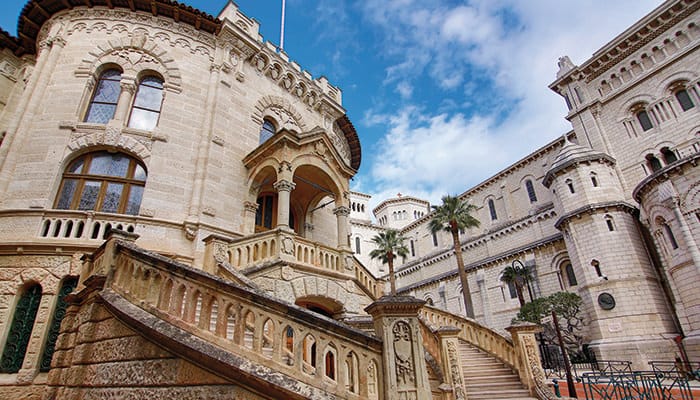Former Uralkali owner Dmitry Rybolovlev has been charged with corruption. The Prosecutor’s Office of Monaco believes that the Russian billionaire has managed to bribe a number of senior law enforcement officials and judges of the Principality. Scandal dubbed in the press “Monacogate”, has already cost the post of Minister of Justice of Monaco. Philippe Narmino had to resign when the media found out how he, along with his wife and son, rested in residences Rybolovlev, what gifts he accepted. And now the billionaire himself will have to answer for trying to buy justice. Who wanted to sue Rybolovlev? Why does he consider himself a victim of fraud? And will he be acquitted of all charges, like Senator Suleiman Kerimov?
Property of Dmitry Rybolovlev in Monaco and Hawaii
On November 6, the French newspaper Le Monde reported that Dmitry Rybolovlev, a Russian billionaire and president of the Monaco Football Club, was detained in Monaco. The arrest was sanctioned by a judge of the Principality: the Russian businessman, whose fortune in 2018 was estimated by the American Forbes at $6.8 billion, was suspected of corruption and “active and passive influence peddling.” And the businessman’s luxury apartments in the exclusive residential complex La Belle Epoque in Monaco were searched.
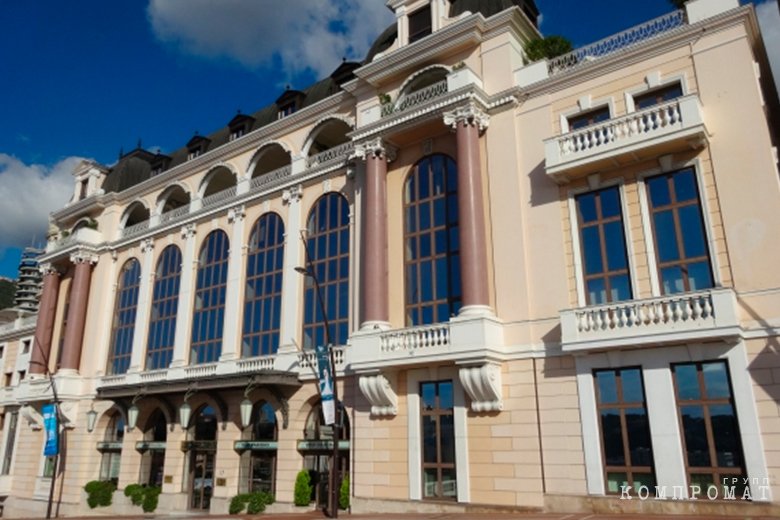
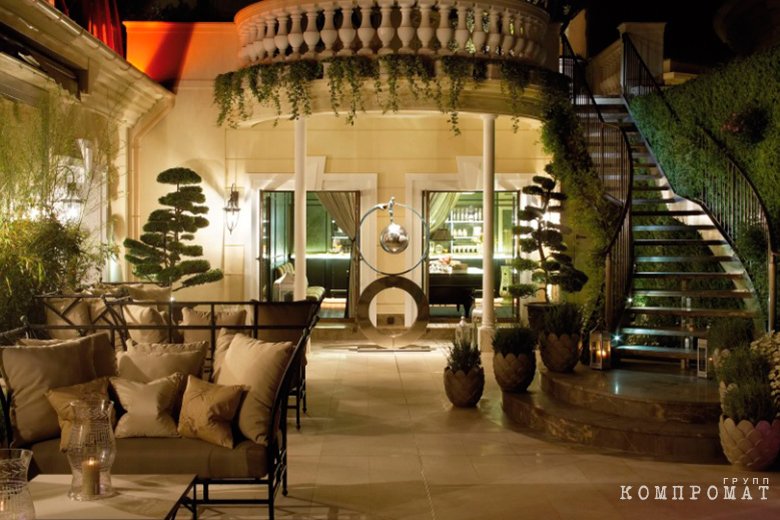
Apartments at La Belle Epoque
The former owner of Uralkali bought the two-story penthouse on the Mediterranean coast for a record sum of more than 300 million euros. But the purchase was worth it: the apartments in La Belle Epoque are considered some of the best in the world, and in Monaco only a princely residence can match them by the level of luxury.
Dmitry Rybolovlev was born in 1966 in Perm. In 1990, he graduated from the medical faculty of the Perm Medical Institute. In his student years, together with his father, who taught at the same institute, he founded Magnetix, a company engaged in the treatment of cardiovascular diseases with the help of magnetotherapy. In 1992 he obtained the license for work with securities and founded the investment firm “Financial House”. Within two years, he bought a large block of shares in the Uralkali company at voucher auctions. In 1994, he became the head of Credit FD Bank. In 1996, he was arrested on charges of murdering Yevgeny Panteleimonov, general director of JSC “Neftekhimik”; in 1997, he was fully acquitted by the Perm Region Court. By 2000, he owned 63% of Uralkali’s shares and was chairman of the company’s board of directors until 2011. In 2010-2011, he sold his stake in Uralkali to Suleiman Kerimov, Filaret Galchev and Alexander Nesis for more than $5 billion. In 2011, he moved to Monaco, bought the Monaco Football Club and became its chairman. Divorced, has two daughters – Catherine and Anna.
Dossier and biography
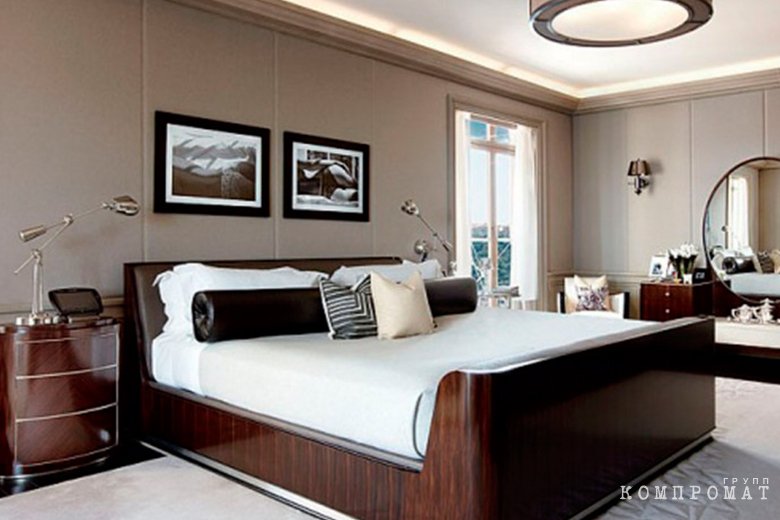
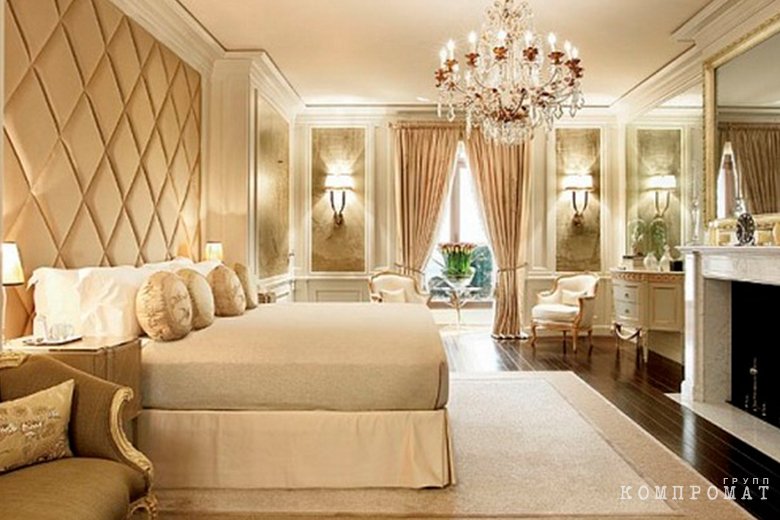
Apartments at La Belle Epoque
The Rybolovlev’s two-story penthouse has a total area of about 1,600 square meters. The apartment is divided into two separate sections, each with several living rooms, kitchens, bedrooms and bathrooms, and walk-in closets larger than the bedrooms in many mansions. All interiors are done in a classic style using expensive natural materials. There is a movie room with the most modern equipment, a billiard room and a SPA-salon with Jacuzzi, and the library occupies two floors. All this is under round-the-clock security, and the armored doors and bulletproof glass provide an additional guarantee of safety. There is also a special high-security room, where you can take cover in case of an attack.
The penthouse comes with a truly huge private terrace where you can stroll in the shade of the trees. It is also possible to swim in the pool with an impressive view of the marina: from La Belle Epoque to the marina it is literally a couple of minutes’ walk. Perhaps Rybolovlev bought the penthouse for this view, because earlier this year the billionaire began building a new 110-meter yacht in the Dutch shipyards. Pictures of the still nameless ship under the working name Project 1007 have already appeared in the network. Together with the outfitting the ship will cost about half a billion dollars. The yacht is being designed by Michael Leach, who has previously worked on Mikhail Prokhorov’s 96-meter Palladium. This ensures that Rybolovlev’s four-deck superyacht will be a worthy decoration for the marina, which can be seen from the terrace of his penthouse.
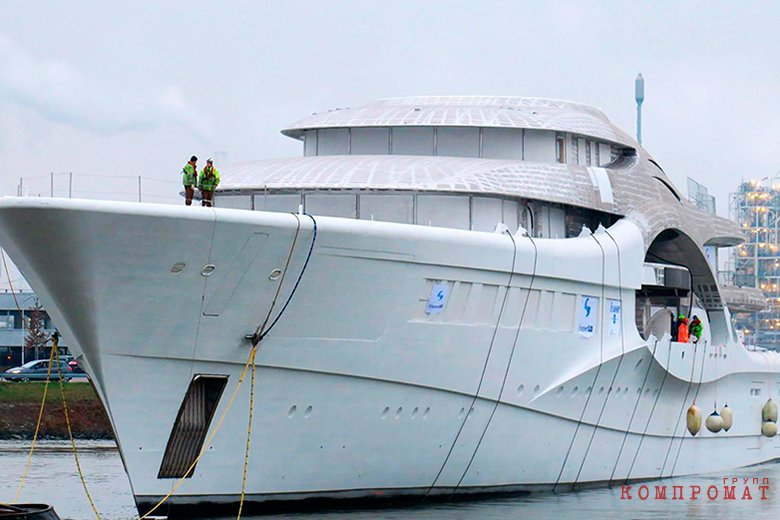
Rybolovlev’s yacht
According to Le Monde, searches took place not only in Rybolovlev’s penthouse in La Belle Epoque, but also in the office of the Russian billionaire in Monte Carlo. Documents, cell phones and computers were seized. The publication did not specify whether searches were conducted in another apartment of the former owner of Uralkali in Monaco – luxury apartments on Boulevard Suisse. The remaining properties of Rybolovlev and his family are outside the Principality, so protected from the attention of law enforcement agencies of Monaco.
The oligarch owns a long list of properties in Switzerland, London, St. Tropez, New York and Miami. And one of his mansions, the Maison de LAmite in Florida, Rybolovlev bought in 2008 from the future U.S. President Donald Trump. The Russian billionaire paid the American $95 million for a “modest” villa of 60,000 square feet on the ocean in Palm Beach. The deal with Trump became the most expensive home sale ever registered in the United States.
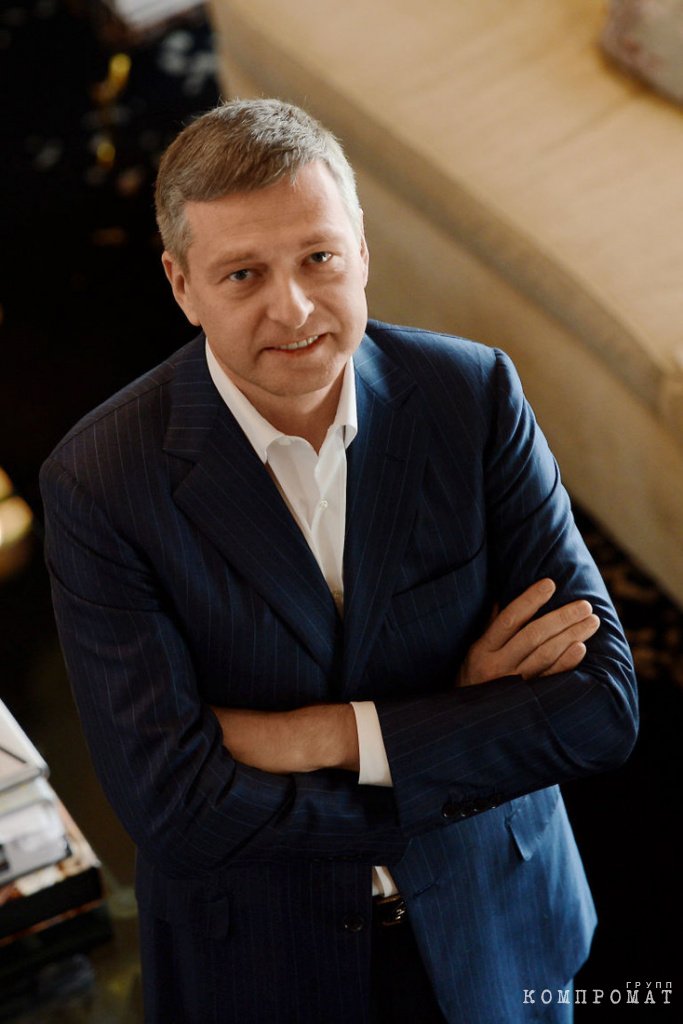
For a record sum Rybolovlev received an entire estate. On the territory of about 2.5 hectares were placed the main house with 15 bedrooms and bathrooms, several guest houses, swimming pool, tennis courts, winter garden, a garage for 50 cars and its own beach. However, the Russian citizen considered the Maison de LAmite not luxurious enough and immediately after the purchase began repairs. So in the mansion there were galleries with marble columns, Venetian stucco and lamps covered with 24-carat gold. Apparently, however, the new owner was dissatisfied with the result, so he never vacationed in the renovated mansion. Instead, he divided the Maison de LAmite into parts and sold it, at a considerable profit to himself.
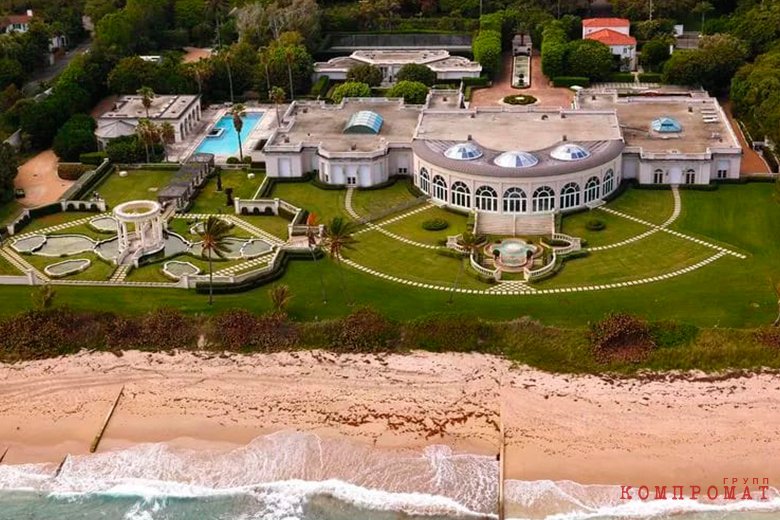
Maison de LAmite
Rybolovlev was much more attracted to the mansion in Hawaii, formerly owned by Hollywood actor Will Smith. The Russian billionaire bought it in 2013 for $20 million. The 200-square-meter house has only three bedrooms and three bathrooms, and has a swimming pool, tennis and volleyball courts nearby. Modest by the standards of Rybolovlev, but it is very close to the ocean, and the billionaire likes to fish.
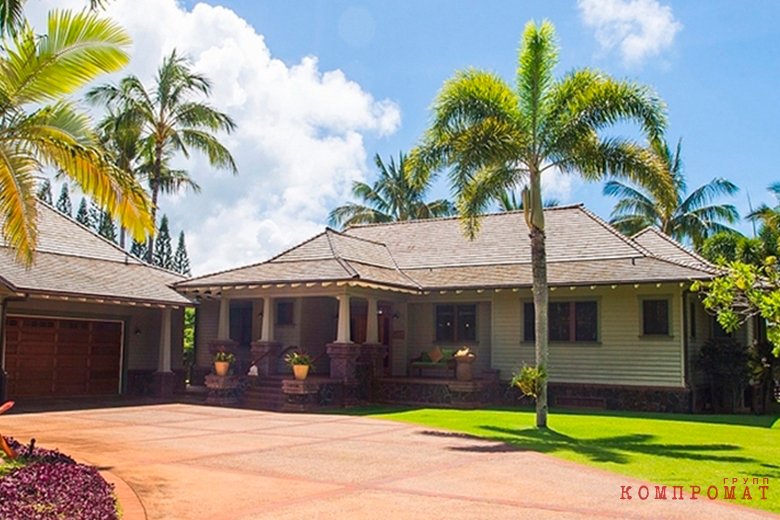
The former “king of potassium fertilizers” appreciates good fishing so much that he banned Greek fishermen from fishing off the coast of Scorpios Island in the Ionian Sea under threat of a 30,000 euro fine. On this legendary island, former U.S. first lady Jacqueline Kennedy married magnate Aristotle Onassis in 1968. And in 2013, Scorpios was bought by Rybolovlev, paying the previous owner of the island, Athena Roussel (Onassis), $120 million. The billionaire gave the island to his daughter. Catherine supported the romantic tradition and married the Uruguayan financier Juan Sartori on Scorpios. And the newlyweds settled in a 10-room penthouse in New York at 15 Central Park West. Rybolovlev bought the 630-square-meter apartment in 2011 for a record $88 million. However, he did not live in the luxurious penthouse and gave it to Catherine. The billionaire himself prefers a penthouse in La Belle Epoque in Monaco, only these luxurious apartments Rybolovlev calls his home.
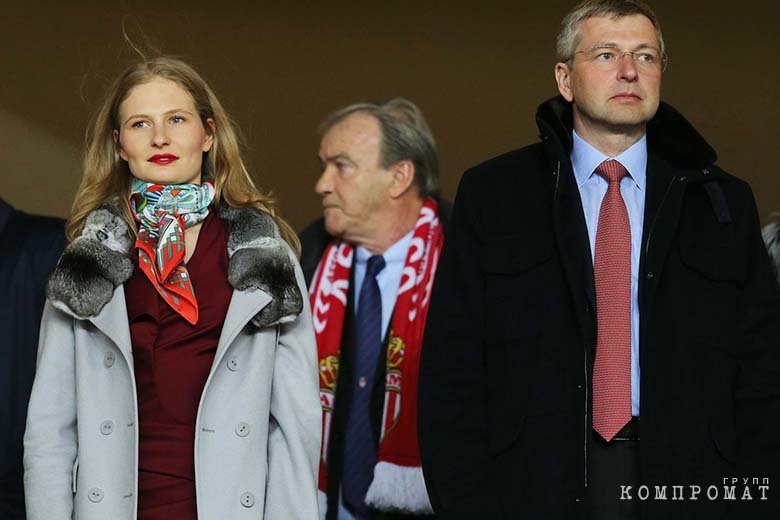
Undoubtedly, the Russian billionaire was uncomfortable when the police came to his home. But Rybolovlev was unable to prevent the searches because he himself was at the time testifying at the police station, where he had to spend the entire night. Only the next day, November 7, the former owner of Uralkali was released from custody and allowed to return to the penthouse at La Belle Epoque. Lawyers for the Russian billionaire Hervé Temin and Tom Giaccardi said that after questioning the businessman was released under the condition of judicial control, he has the right to leave Monaco. Rybolovlev is completely free in his movements, he is only forbidden to meet with persons involved in the proceedings, and is ordered to appear on a summons to the judge.
According to the newspaper Nice-Matin, Rybolovlev was charged with corruption. And according to the newspaper Monaco-Matin, along with Rybolovlev was detained a number of former officials of the judicial apparatus of Monaco, up to the most senior. All of them, like Rybolovlev, spent the night of November 6 to 7 in custody to continue to testify in the morning. And the arrests took place not only in Monaco, but also in Nice. “We could be talking about a new hearing in the case against the Swiss art dealer Yves Bouvier,” concluded the newspaper Monaco-Matin and a number of other publications.
Dmitry Rybolovlev is a connoisseur of art
The events that led to arrests on an unprecedented scale for the Principality began to develop when Rybolovlev set himself the goal of gathering “the best collection of masterpieces of world art.
The intermediary was the famous Swiss art dealer Yves Bouvier, who manages warehouses where works of art, expensive wine and precious metals are stored. In 2003, Bouvier helped the owner of Uralkali buy a Van Gogh painting, and then some forty more masterpieces for a total value of approximately $2 billion. As a result, by 2014, the Russian businessman managed to collect the best private collection of paintings in the world.
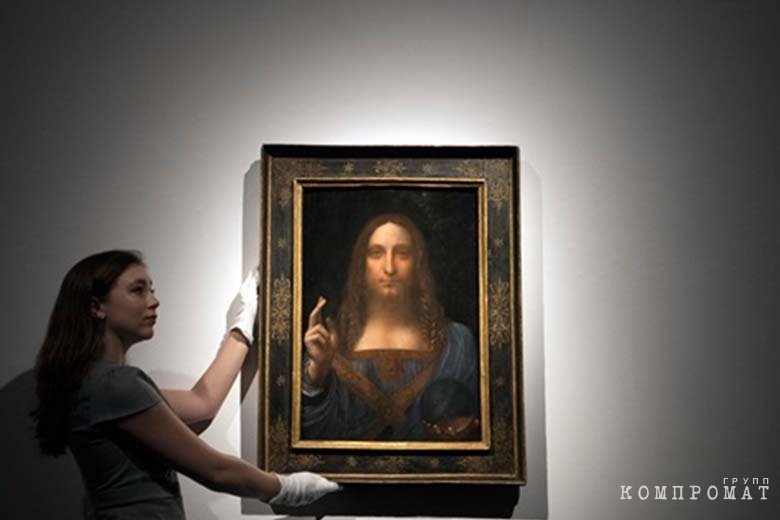
One of the paintings that Rybolovlev purchased with the help of Bouvier was the famous painting “Savior of the World” by Leonardo da Vinci. In 2013, the Russian transferred to the art dealer for the priceless masterpiece $127.5 million. And in 2015, the new owner of the painting was surprised to learn that Bouvier gave for it almost 50 million less. An indignant collector began to check the other transactions and found that overpaid Bouvier about a billion dollars. The art dealer sold paintings with a huge markup or through front men, pretending that they belong to someone else. So, Sandy Heller, art consultant hedge fund billionaire Steve Cohen, told a Russian collector that he sold the “Nude on a blue pillow” painted by Modigliani to some “mystery shopper” for 93.5 million dollars. It turned out himself Rybolovlev, who paid Bouvier for the painting 118 million.
For more than 10 years, the businessman’s representatives paid the art dealer about 2% of the purchase price for his services, and also paid his expenses in addition. However, Yves Bouvier was not satisfied with the legal remuneration, but negotiated significant discounts with sellers, simultaneously inflating the price for the businessman and pocketing the difference. In order to restore justice, Rybolovlev turned to court accusing the art dealer of unreasonable overpricing and demanding that his assets in offshore accounts be seized. A long battle began, which lasts to this day. Courts ruled several times to seize assets, but then recognized that the proceedings should be conducted in Switzerland, a citizen of which Bouvier is.
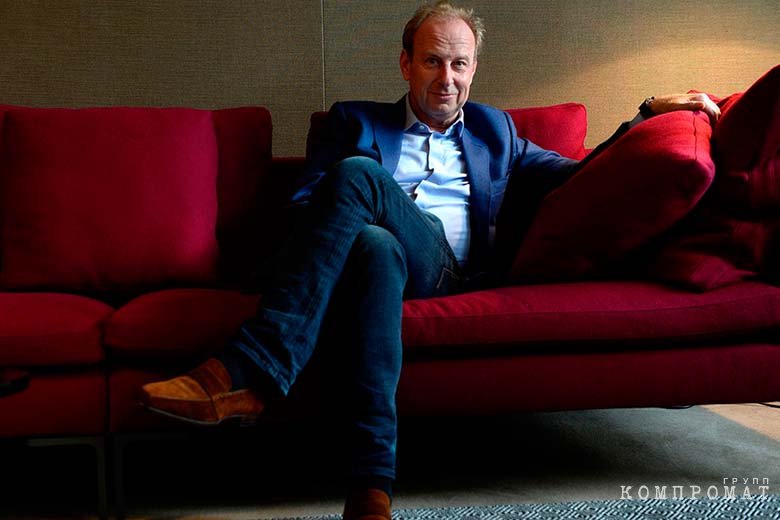
In order to speed things up and tilt the cup of justice in his favor, Rybolovlev decided to act according to a scheme that has repeatedly proved effective in Russia
If the French media are to be believed, the businessman established friendships with people who could have swayed the outcome of the lawsuit with Bouvier. And in 2015, those connections helped arrest the dealer in Monaco when he arrived to discuss with Rybolovlev the sale of a painting by Mark Rothko for $140 million. Bouvier was charged with fraud because the masterpiece was worth nearly 80 million euros less than the dealer had asked for.
However, Bouvier was soon released on bail of 10 million euros. The dealer did not admit his guilt, saying that he sold the billionaire works of art for the price he was willing to pay. Instead of admitting guilt, Bouvier accused Rybolovlev of bribing the law enforcement authorities of the Principality. On the side of the art dealer stood up French journalists, and then the scandal broke out, which received in the foreign press the name of “Monacogate”.
On September 14 last year, Le Monde newspaper published an investigation accusing the Minister of Justice of Monaco Philippe Narmino of corruption. The newspaper found out that the Minister of Justice and his wife received expensive gifts from Rybolovlev and stayed in his Swiss chalet in early 2015 – just when the Rybolovlev-Bouvier case began. The journalists obtained evidence of Narmino’s corruption from text messages extracted from the personal phone of Rybolovlev’s lawyer Tatiana Bersheda. It was Bersheda who alerted the police commissioner Christophe Agier and his deputy about the arrival of the art dealer in Monaco, after which Bouvier was arrested. Having studied Bersheda’s correspondence, Le Monde concluded that the Russian businessman had “inadmissible connections” not only with Narmino, but also with other high-ranking members of the judiciary, police officers and politicians in Monaco.
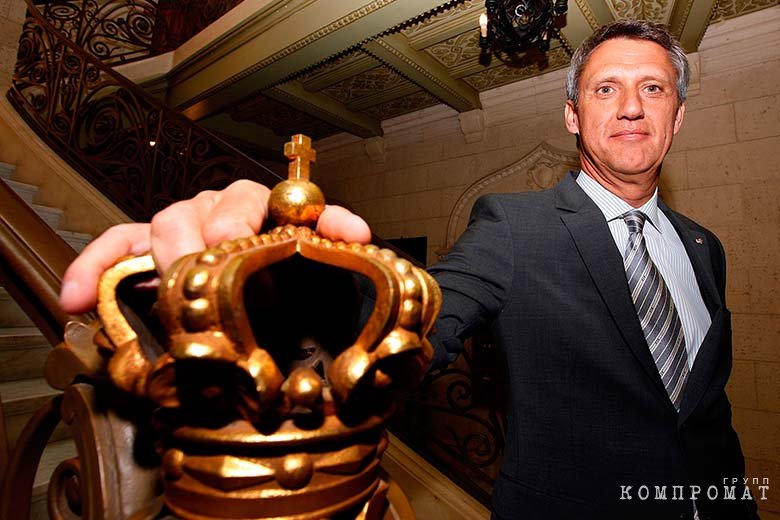
Just hours after the publication of the Le Monde investigation, Philippe Narmino had to resign. On September 22, as Agence France-Press reported, the official was detained and questioned, but the former minister was released from custody on the same day.
At the same time, Bulgarian citizen Tania Rappo, Bouvier’s assistant, filed a police report. In February 2015, Rybolovlev invited Rappo to dinner, where she confirmed that the art dealer had artificially inflated prices. Bersheda recorded their conversation on her phone and gave it to the police as evidence of Bouvier’s wrongdoing. But because the recording was made illegally, Rappo was able to accuse Rybolovlev and Bersheda of “invasion of privacy”. And when Bersheda’s phone was in the possession of Monaco law enforcement, the judge wanted to see not only the recording of the conversation with Rappo, but also the entire contents of the lawyer’s phone.
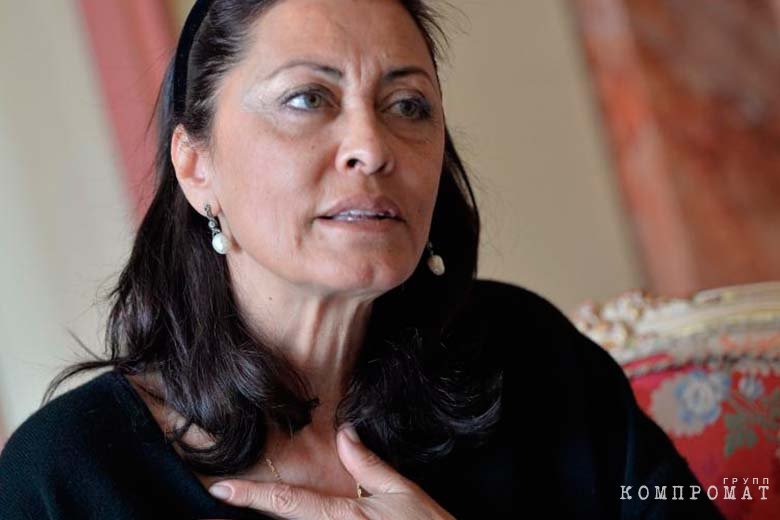
Having studied all the records, the prosecutor’s office found evidence of Rybolovlev’s collusion with the Principality’s law enforcement agencies. They found evidence of “informal” communication of the oligarch in the Bouvier case with the Monaco Criminal Police, the Minister of Justice and the intelligence services of the Principality. It turned out that Rybolovlev had indeed given Narmino and other officials of the Principality expensive tickets to soccer matches and had taken them to ski resorts in a private helicopter. The Monaco prosecutor’s office announced it was launching an anti-corruption investigation against the unnamed suspects. And a year later, the records on Bersheda’s phone became grounds for the detention of the billionaire, because they prove “the existence of a secret network, fighting with the local courts in favor of Rybolovlev.
The lawyers of the Russian billionaire Hervé Temin and Tom Giaccardi do not dispute the fact that the Prosecutor’s Office of Monaco has charged Rybolovlev with corruption. The charges were also brought against the lawyer Tatiana Bershede, the wife and son of the former Minister of Justice of Monaco Philippe Narmino. However, according to the businessman’s defenders, the court does not yet have the grounds for the start of the trial or evidence that could lead to a conviction. “We particularly emphasize the fact that at this stage Mr. Rybolovlev is considered innocent, and we insist on the need for strict compliance with this principle and the rights associated with it,” the defenders stressed. They are confident that they will achieve a complete acquittal of the Russian billionaire. After all, the facts, which became the basis for the charges against Rybolovlev, have already been challenged in the Court of Cassation in Monaco, because “related to the use of his lawyer’s cell phone”. The lawyers also recalled that Rybolovlev had previously challenged in court all the charges brought against him by Yves Bouvier.
It is known that during the interrogation the billionaire was asked 600 questions, which he refused to answer.
It is logical to assume that the story with the former owner of Uralkali will end the same way as the detention of Council of Federation member Suleiman Kerimov, who was suspected of money laundering. Together with the senator, the French police also detained several people almost exactly a year ago, suspecting tax fraud by an “organized group.” But by July of this year, all charges against Kerimov had been completely dropped. The “high-profile” case, inflated by hundreds of publications in the media, burst like a soap bubble.

